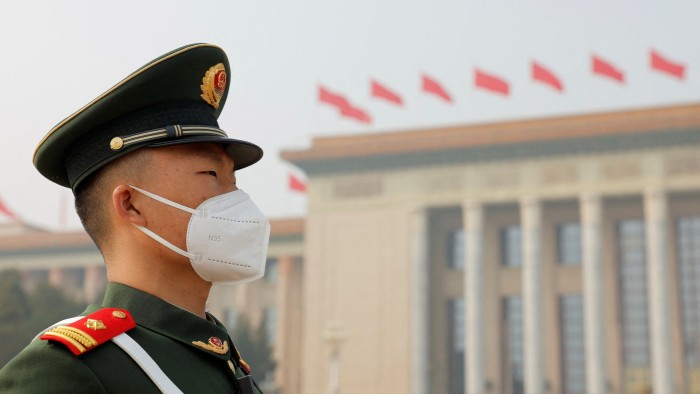Unlock the White House Watch newsletter for free
Your guide to what Trump’s second term means for Washington, business and the world
The US embassy in China has expressed concerns about damage to bilateral relations from exit bans, following reports that a commerce department employee had been prevented from leaving the country.
The tensions over exit bans come as the two superpowers are locked in a trade war, and ahead of a potential meeting between US President Donald Trump and Chinese leader Xi Jinping.
The US “closely” tracks exit bans on American citizens in the country, a spokesperson for the embassy said on Monday, in response to a query about the commerce department employee.
The person added that they had “raised our concern with Chinese authorities about the impact these arbitrary exit bans have on our bilateral relations and urged them to immediately allow impacted US citizens to return home”.
The case is likely to prompt concerns among business groups, officials and others planning to travel to China. Wells Fargo, the US bank, halted travel to China last week after an Atlanta-based managing director was hit with an exit ban.
Exit bans are usually issued without an official public explanation. Individuals in China are prevented from leaving for reasons that can range from alleged espionage and corruption investigations to business disputes.
The commerce department official was a Chinese-American who works for the Patent and Trademark Office and who had travelled to China to meet relatives, according to the Washington Post, which first reported the case.
“The Chinese government has, for many years, imposed exit bans on US citizens and other foreign nationals in China, often without a clear and transparent judicial process for resolution,” the US embassy spokesperson said.
China’s foreign affairs ministry said it had no “information to share” on the case. A spokesperson added: “China is a country upholding the rule of law,” and that all such cases were handled in accordance with the law.
The spokesperson also said that the Wells Fargo banker, Chenyue Mao, was “involved in a criminal case”.
“The case is under investigation, and Mao Chenyue is
temporarily not permitted to leave China. She is also obligated to co-operate with the investigation,” the spokesperson said.
Wells Fargo declined to comment on Mao’s case.
China’s use of exit bans has led the US to advise visitors to the country to exercise heightened caution, warning about the arbitrary enforcement of local laws.
The latest case comes as Beijing has promoted foreign tourism through visa-free travel arrangements for citizens from a growing list of countries.
A senior banker at Nomura, Charles Wang Zhonghe, was subjected to an exit ban that confined him to mainland China for several months before he was allowed to leave last year.
China last week sentenced a Japanese pharmaceutical executive, who had been charged with espionage, to three-and-a-half years in jail, without publicly disclosing evidence against him. The case prompted protests from the Japanese embassy in Beijing against China’s opaque judicial processes.
Read the full article here




